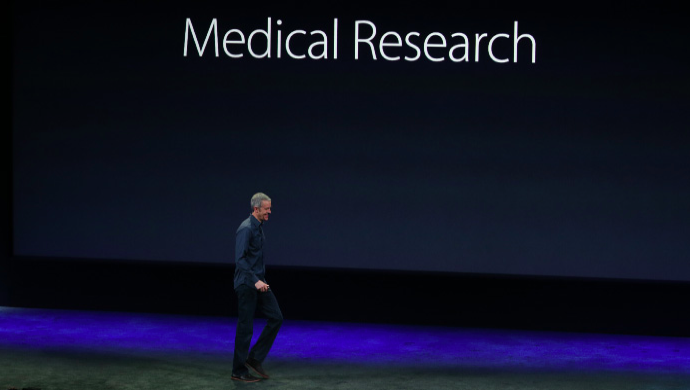
Apple will be teaming up with scientists to collect DNA as part of its ResearchKit program, which launched in March. The program would collect consumers health information through a secure portal, with the added opportunity for users with certain conditions to take part in a number of clinical studies. According to the MIT Technology Review’s report, Apple has two currently planned studies, one at the University of California in San Francisco, and the other with Mount Sinai Hospital in New York.
Users would participate by spitting and returning the completed kit to an Apple-approved laboratory. The report reads, “The data would be maintained by scientists in a computing cloud, but certain findings could appear directly on consumers’ iPhones as well.” Integrating apps that partner with DNA collection on a platform as popular as iOS would place Apple in a good position to lead the charge in a new realm of genetic databasing.
“Nudging iPhone owners to submit DNA samples to researchers would thrust Apple’s devices into the center of a widening battle for genetic information,” the MIT review states.
The studies are aimed at investigating 100 or so “medically important disease genes.” The future of the connected world is fascinating, and as the review points out, could see us swiping our genetic information at pharmacies to receive information on the drugs we’re picking up. Apple has not given a comment on the report.



